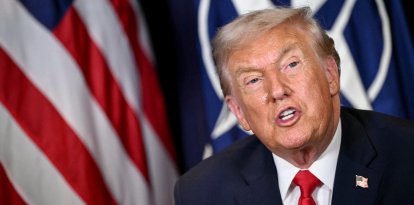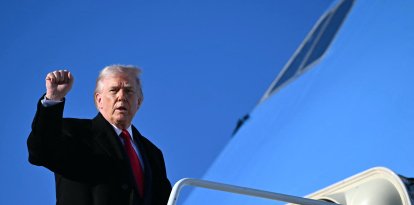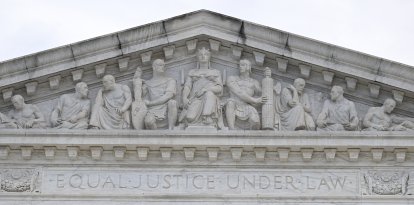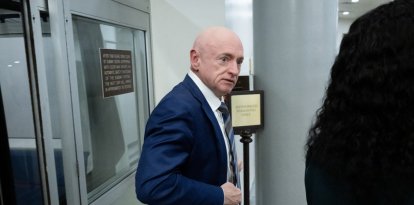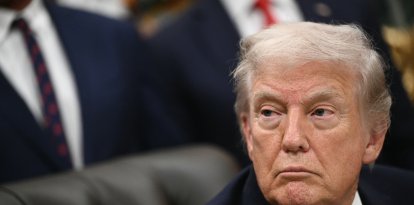Progression of Trump's nominations: challenges and strategies to secure confirmations
Some of the most high-profile nominees appear to have a relatively clear path to confirmation. However, for those whose approval faces hurdles, the president-elect's allies have stepped up the pressure.

Donald Trump
Donald Trump's nominations for key posts in his future Cabinet are beginning to take shape, and the prospects for confirmation of his nominees continue to evolve. As the process moves forward, the pressure on Republican lawmakers intensifies, as they must decide whether to back the president-elect or risk facing disapproval from Trump's support base.
According to a report by Politico, compiled after conversations with several Republican lawmakers, this is how the outlook for Trump's nominations is shaping up.
Nominations with strong confirmation prospects
Some of Trump's most high-profile nominees appear to be on a relatively clear path to confirmation. Senator Marco Rubio for Secretary of State is one of the names that stands out, with some Democrats recognizing his skills and experience. Even Senate Majority Leader Chuck Schumer has already met with Rubio, suggesting his nomination is well on track.
Pam Bondi, a former Florida attorney general, has been presented as a more palatable choice compared to Matt Gaetz, whose nomination as attorney general was rejected. Despite some question marks, Bondi has gained ground and has initiated meetings with senators to present her vision for the position.
For her part, Representative Elise Stefanik, nominated to be ambassador to the United Nations, is also in a favorable situation. Her frequent visits to the Senate and the lack of significant opposition within her own party suggest that her confirmation is almost certain, although she is also still in the process of meeting with legislators.
Other nominations such as that of Scott Bessent for Treasury secretary and Doug Burgum for Interior secretary also appear to be moving forward without major obstacles. The nomination of Linda McMahon as secretary of Education also has the necessary backing to pass the hearings.
Key hearings for the most controversial nominees
Not all nominations are free of controversy. The nomination of Kash Patel as FBI director, while it did not generated much opposition in the initial phase, could face significant hurdles when his proposals for FBI reform are further evaluated. The upcoming hearings will be crucial in clarifying his plans and allaying senators' concerns.
Tulsi Gabbard, nominee for director of national intelligence, also faces an uncertain outlook. Her past comments on Russia and Syria, coupled with her lack of intelligence experience, put her in a vulnerable position with some of the lawmakers.
As for the nomination of Robert F. Kennedy Jr. to head the Department of Health and Human Services, questions still linger, especially because of his positions on vaccines. While his nomination cannot yet be said to be in jeopardy, a lack of initial support from moderate and swing vote senators could complicate matters.
Finally, Pete Hegseth, nominee for defense secretary, faces intense scrutiny. Despite lingering doubts about his suitability for the post, Trump allies have launched a determined advocacy campaign to ensure the nomination moves forward and the meetings have shown significant progress.
The new strategy of Trump's allies
With confirmation nominations at play, Trump's allies have adopted a new strategy to ensure their nominees are approved. This involves pressuring Republican senators who show doubts about some of the nominees, as was the recent case with Senator Joni Ernst.
After expressing concerns about Hegseth's nomination, Ernst changed her position after receiving intense criticism from Trump's base. The social media campaign by the president's supporters has been key to changing lawmakers' minds. Trump and his allies are using this strategy to ensure that skeptics align with the president's agenda.
The Trump transition team, led by his vice president-elect JD Vance, has played a key role in mobilizing support within the Senate. Vance has worked to consolidate Republican votes and has been key in maintaining confidence in Hegseth's candidacy. This has made it clear that any senator who opposes Trump's nominations could face political consequences, including lobbying campaigns in their respective states.
At this point, the nomination fight continues, and the outcome will depend on the upcoming hearings and negotiations on Capitol Hill.













